
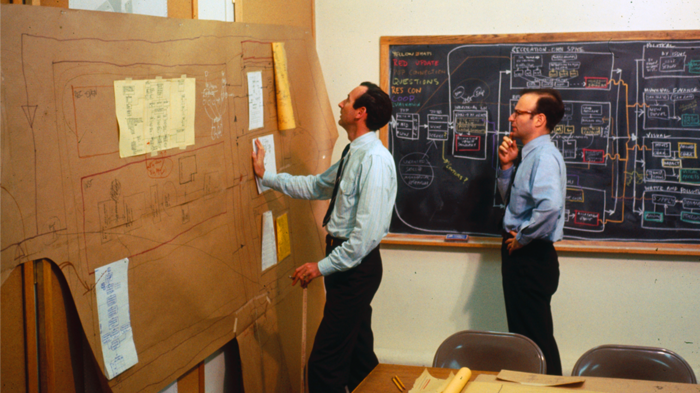

Computational Histories
-
Details
Wie lassen sich digitale Technologien und Praktiken historisch verorten und welche kulturellen, materiellen, politischen und sozialen Dimensionen sind damit verbunden? Die hier untersuchten Projekte fokussieren Entwicklungen seit der Nachkriegszeit, widmen sich der Integration des Computers in Planungs- und Entwurfsprozesse und interessieren sich für verschiedene Akteur*innen, die an der Entwicklung eines sich wandelnden Verständnisses von Planung auf unterschiedlichen Maßstabsebenen beteiligt waren. Die Versprechungen und Utopien, die mit der Erforschung computergestützter Ansätze verbunden waren, werden ebenso thematisiert wie Trial-and-Error-Verfahren.
Writing the History of the Computer Visualizations in the Sciences: Production, Uses, Circulation (1940-1990)
Grayson Bailey, Nathalie Bredella
2.-3. Mai 2024 @ Écoles des Hautes Études en Sciences Sociales
View ProgramIs That a Computer Program? Carl Steinitz on the Early Years of Harvard’s Laboratory of Computer Graphics and Spatial Analysis
Grayson Bailey, Nathalie Bredella
Dimensions Journal of Architectural Knowledge
November 2024Computing practices, data-based design, and knowledge cultures during the post-war period
Nathalie Bredella
Meson Press
2024
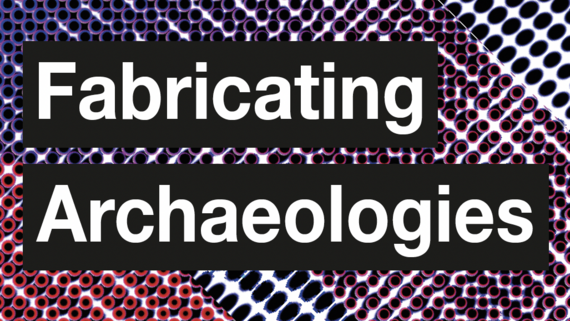
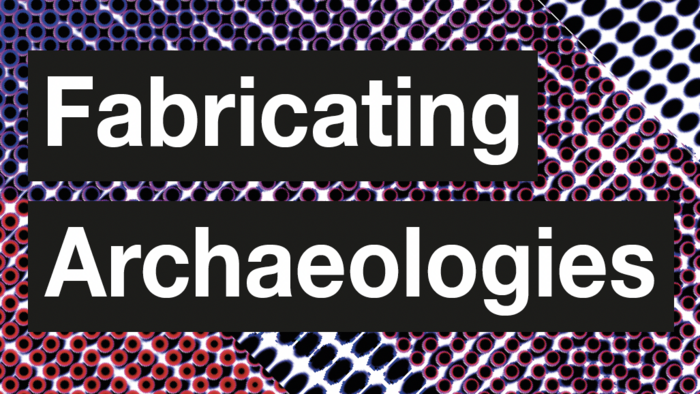
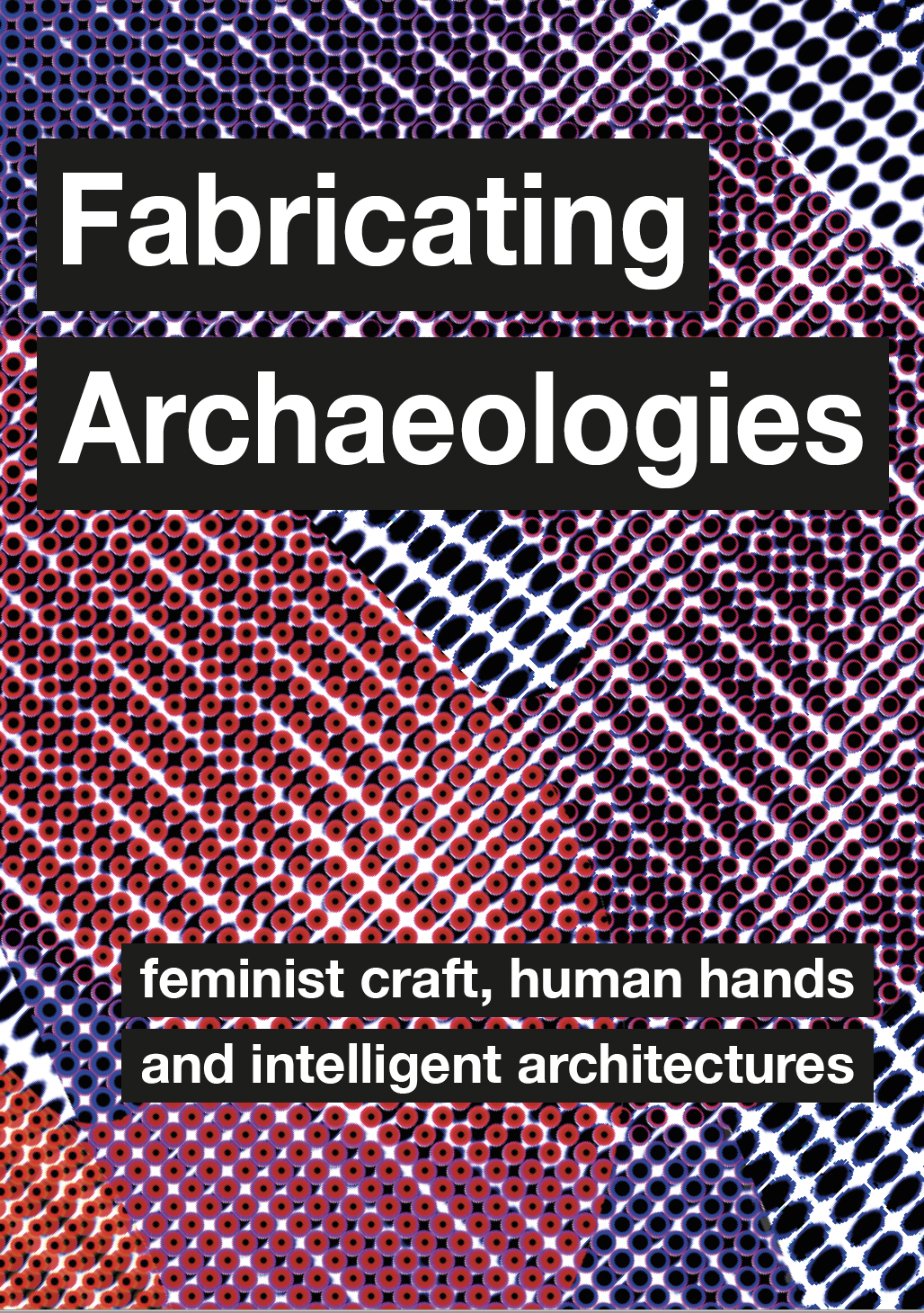
Feminism and Digital Cultures
-
Details
Das Forschungsprojekt untersucht Methoden feministischer Praxis in ihrer Bedeutung für digitale Kulturen. Die interdisziplinäre Fokusgruppe bringt die Lehrstühle für Theorie und Geschichte der Architektur, Kunst und Design, für Architekturinformatik, Städtebau, Gebäudetechnologie und klimagerechtes Design, digitale Fabrikation sowie den Lehrstuhl für Geschichte der Architektur und kuratorische Praxis zusammen, um nach den Protagonist*innen digitaler Praktiken, ihren Wissenskulturen und ihren sozialen, ökonomischen und politischen Kontexten zu fragen. Untersucht werden historische und aktuelle Methoden, Ereignisse und Praktiken, die bislang in der Architekturgeschichte nicht berücksichtigt wurden. Forschung und Lehre stehen im Projekt im Austausch miteinander. Zu den Methoden gehören Oral History, Reenactment, Archivarbeit und Ausstellungen, die die Ergebnisse mit der Öffentlichkeit erforschen und kommunizieren.
Fabricating Archaeologies: Feminist Craft, Human Hands and Intelligent Architectures
Nathalie Bredella, Andrea Reichenberger (TUM), Rudolf Seising (TUM)
3.-4. Juli 2024 @ TUM IAS
View ProgramPrepared Instruments and Craft Genealogies
Grayson Bailey, Nathalie Bredella, Jonah Marrs
7. Juni 2024 @ TUM Pavilion 333
Visit ProgramLink It and Move It Youth Workshop
Grayson Bailey, Nathalie Bredella, Jonah Marrs
12. Okt 2024 @ Deutsches Museum
Visit ProgramAgentive Matter(s) Workshop
Nathalie Bredella, Anna Keune (TUM)
22. Nov 2024 @ TUM IAS
Visit Program
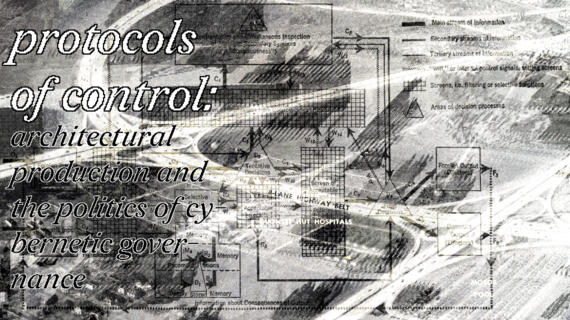
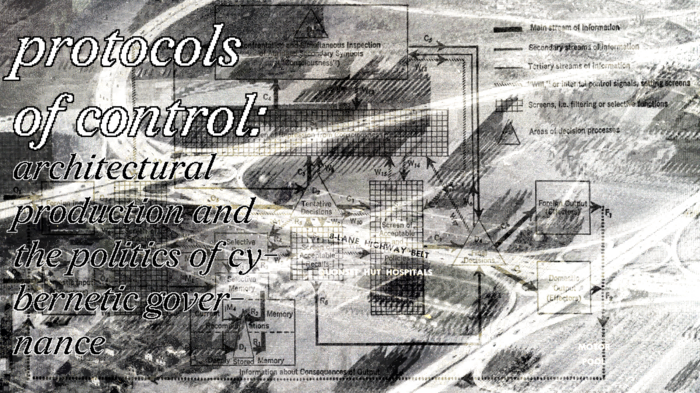
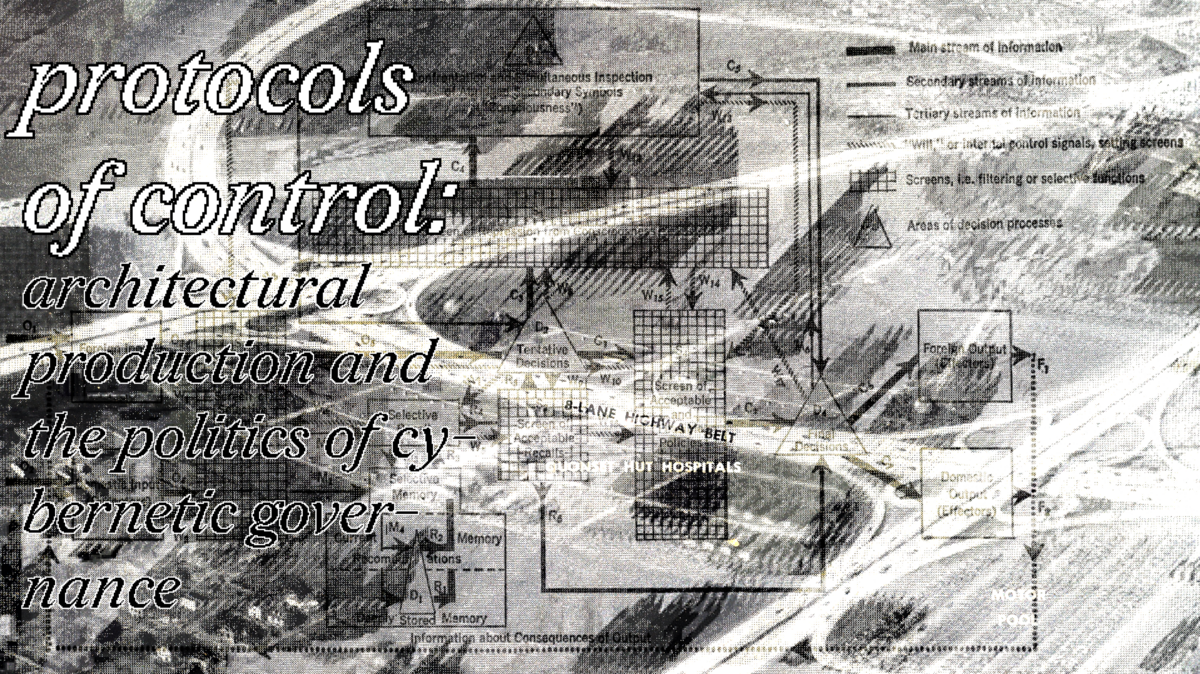
Protocols of Control
-
Details
Communication and Complexity in Architecture: cybernetics as governmental paradigm
Grayson Bailey
Doctoral ResearchThe following doctoral proposal examines the influence of Cybernetics as a “governmental paradigm” on contemporary architectural discourse. As a discipline of systems theory, Cybernetics has had a transformative influence in Architecture, especially in its transition from technical theories during the Post-War period to an increasingly integrated network of political logics. Cybernetics-as-governmental-paradigm refers to the ideological manner in which Cybernetics has informed political and discursive conditions in the past century. Architectural discourses which address the themes of “Ecology”, “Network”, “Sustainability”, and “Participation” have largely internalized core concepts from Cybernetics, such as “System”, “Protocol”, “Equilibrium”, and “Feedback”. However, uncritical invocations of these concepts in Architecture ignore a fundamentally ideological dimension, on whose distributed effects must first be recognized before any potential reappraisals of architectural political realities can take place.
In the disciplines of political, media, gender and cultural theory, the role of cybernetics-as-governmental-paradigm has been a nuanced topic of research since the 1980s. However, architectural reflection on the ongoing influence of cybernetics-as-governmental-paradigm remains limited, with analysis of new political conditions largely dividing itself between network-utopianisms or entrenched 20th century critical frameworks.
This project involves the comparative analysis of architectural and cybernetic discourses with a focus on the contested manners in which Architecture engages interconnected themes: Ecology / System, Network / Protocol, Sustainability / Equilibrium, Participation / Feedback. Case studies related to each thematic set (exemplary events, practices, objects) will also be used to additionally reflect on the architectural conditions of cybernetics-as-governmental-paradigm. Finally, a synthesis of discourses will be used to situate architectural production in the contemporary political landscape and to establish new political affordances.
ArchTHEO 24 International Conference on Theory and History of Architecture
Grayson Bailey
15. Nov 2024 @ DAKAM InstanbulCritic/all V International Conference on Architecture Design & Criticism
Grayson Bailey
10-11 Oct 2023 @ TU Delft
Visit Program